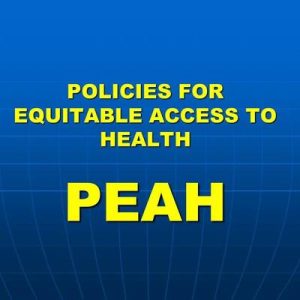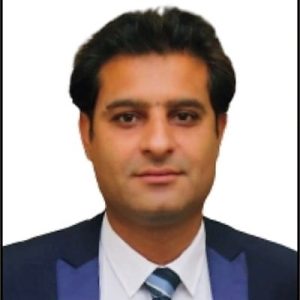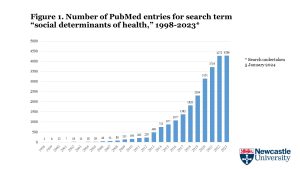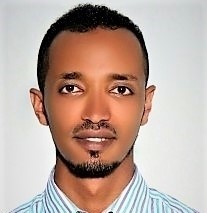IN A NUTSHELL
Editor's note
 By putting governments and WHO under critical lens as for current positions to counteract climate change-tied health & environment deterioration, this article condemns the ongoing exclusion of civil society (CSOs e NGOs) from far-reaching relevant decisions. Under these circumstances, solutions to secure factual cohesion with civil society organisations are envisaged. As the Author maintains ‘…The Health & Environment nexus requires a real multi-stakeholder approach, not some unnamed heads of government that claim to represent the peoples of the world. The only sustainable approach is that of separate constituencies/stakeholders who develop solutions within their stakeholder group, and once they have formulated their own position, then to reach out to the other stakeholders. It does not make sense to have Civil Society be amalgamated into a government position nor be controlled and absorbed by an International Organisation…
…Concretely, in light of the fact that CSOs and NGOs do not have co-decision power at the WHO, it would be best to create an independent voice regrouping CSOs and NGOs who can speak with credibility on health and environment issues…’
By putting governments and WHO under critical lens as for current positions to counteract climate change-tied health & environment deterioration, this article condemns the ongoing exclusion of civil society (CSOs e NGOs) from far-reaching relevant decisions. Under these circumstances, solutions to secure factual cohesion with civil society organisations are envisaged. As the Author maintains ‘…The Health & Environment nexus requires a real multi-stakeholder approach, not some unnamed heads of government that claim to represent the peoples of the world. The only sustainable approach is that of separate constituencies/stakeholders who develop solutions within their stakeholder group, and once they have formulated their own position, then to reach out to the other stakeholders. It does not make sense to have Civil Society be amalgamated into a government position nor be controlled and absorbed by an International Organisation…
…Concretely, in light of the fact that CSOs and NGOs do not have co-decision power at the WHO, it would be best to create an independent voice regrouping CSOs and NGOs who can speak with credibility on health and environment issues…’

By Raymond Saner, Ph.D.
Director, Centre for Socio-Eco-Nomic Development-CSEND
Geneva, Switzerland
WHO and Health & Environment
Need to Rethink Role of Civil Society
Health and Environment are determinants of human life. Extreme weather events such as floods and droughts are having detrimental impacts on our societies and climate change-induced vector-borne diseases, like cholera and malaria, require urgent attention at global levels. Concerned citizens and government officials are calling for measures to enhance the resilience of healthcare systems.
Current initiatives are undertaken by Government groups, WHO, and NGO groups.
- Governments
A group of like-minded countries, all members of WHO, have drafted a resolution on Climate and Health that is intended for consideration at the World Health Assembly in May 2024. The collective effort is led by the Kingdom of the Netherlands in collaboration with Peru, Fiji, Barbados, Kenya, and the United Kingdom. The final negotiation of the resolution will be up to the assembly of the 194 member countries. The initiative of the six countries is a much-welcomed first step towards an international agreement on Health & Environment.
As clarified by Ambassador Lars Tummers of the Netherlands during an informal meeting at the Palais des Nations in Geneva on 2nd November 2023, the objective of the resolution is to “galvanize the World Health Organization, member states, and other stakeholders into tangible action within the confines of our current shared points of agreements”. The drafting and later text negotiations is the prerogative of governments no matter how competent they might be in regard to the Health & Environment nexus and no matter whether they represent democratic, autocratic or authoritarian régimes who have different preferences in regard to health and environment policies and international agreements.
- WHO secretariat
In reaction to the call by some governments, health experts and civil society, the Director General has published a report on Climate Change and Health (Document EB 154/25) on 20th December 2023 (https://apps.who.int/gb/ebwha/pdf_files/EB154/B154_25-en.pdf) and the Draft WHO Fourteenth General Programme of Work (Document EB154/28) lists six strategic objectives, the first one being “ To promote health by responding to climate change, the greatest health threat of the 21st century”
(https://apps.who.int/gb/ebwha/pdf_files/EB154/B154_28-en.pdf, page 18)
The WHO secretariat published a document titled “The alliance for transformative action on climate and health (ATACH)” on 18th August 2022 (https://cdn.who.int/media/docs/default-source/climate-change/atach-terms-of-reference.pdf?sfvrsn=57814300_40&download=true) which lists the following key objectives:
- Support Member States to develop health systems that are adapted and resilient to the impacts of climate change and that are low-carbon and sustainable, contributing to national net zero goals.
- Encourage Member States to make commitments on ‘climate resilient and sustainable’ health systems and to build on those commitments for increased ambition.
- Elevate the climate and health agenda in both climate and health spaces by identifying and advocating for innovative solutions to global constraints thereby achieving resilient and sustainable systems.
- Identify, disseminate, strengthen and advocate for evidence and knowledge on best practices relating to emerging issues and health argument for climate change action to support implementation of the commitments and encourage global progress in addressing the climate and health nexus.
The ATACH website states that “Alliance” works to realize the ambition set at COP26 to build climate resilient and sustainable health systems, using the collective power of WHO Member States (“Member States”) and other stakeholders to drive this agenda forward at pace and scale; and promote the integration of climate change and health nexus into respective national, regional, and global plans. Five thematic working groups work to address common issues: Enhancing the Health Commitments on Climate Resilient and Sustainable Low Carbon Health Systems; Climate Resilient Health Systems; Low Carbon Sustainable Health Systems; Supply Chains and Climate Action and Nutrition. https://www.who.int/initiatives/alliance-for-transformative-action-on-climate-and-health/
The WHO secretariat’s initiative is addressing important aspects of the Health & Environment nexus and at the same time has created a bureaucratic maze. It invites opportunities to participate to the following participant categories: Government Institutions with a mandate for Climate Change and Health; Intergovernmental organizations, Nongovernmental organizations (including civil society groups); Private-sector entities, represented through international business associations, Philanthropic foundations and Academic institutions.
At the same time, the Secretariat determines with amazing detail over 5 pages the many criteria for qualifications of the participants and equally detailed states that this ATACH “shall in all respects be administered by the WHO Constitution and General Programme of Work, WHO’s Financial and Staff Regulations and Rules, WHO’s manual provisions, and WHO rules, policies, procedures, and practices”.
The ATACH is a timely initiative by the WHO secretariat however because the WHO secretariat has to comply with member governments’ wishes and decisions, the outcome of the voluntary group is unsure and in light of possible blocking maneuvers of some government intent to control and limit ATACH’s deliberations, the creation of an ATACH WATCH organization by civil society organization is called for.
- Civil Society and NGOs
The Geneva Global Health Hub (G2H2) organized a series of webinars of public briefings and policy debates in anticipation of the WHO EB.
The webinar on 15 January 2024 was titled “Putting climate and health at the centre of the next WHO strategy: What does this mean? What does it need for WHO to walk the talk?”
The cover information pertaining to this webinar stated:
Over the last few months, and at the COP28 UN Climate Conference, the interrelatedness of climate and health justice has, finally, received the attention it deserves, and some political traction at the highest political level. In 2024, climate change and health will be prominently on the agenda of the WHO governing bodies, with a resolution proposed by the WHO member states Core Group Climate Change and Health, and with the WHO secretariat’s proposal to put the “response to climate change, the greatest health threat of the 21st century” at the centre of its draft strategy (GPW14) for the next years, as one of six strategic objectives. On this background, the policy briefing and debate explored, in a conversation between civil society organizations, WHO members states and the WHO Secretariat, how this strategic focus of the World Health Organization on climate change and health, if approved by the Governing Bodies, will be transformed into political leadership for the promotion of climate and health justice within and beyond the health sector, and what support by member states, what capacities and financial means are needed for WHO to walk the talk.
Participants were also provided with Documentation and references such as the Draft WHO Fourteenth General Programme of Work. Document EB154/28, the Climate Change and Health. Report by the Director General. Document EB154/25, Climate change and health. A review of WHO’s commitment to ‘safeguarding the health of the planet’, Climate Change and Health Resolution: draft text of WHA77 resolution for negotiation dated 14 November 2023, The project of a WHA77 Resolution on Climate Change and Health: State of the process, civil society narrative, and how to engage., the documentation of a discussion meeting in August 2023 hosted by the MMI Community of Practice on Climate Change and Health, the WHO and COP28 (In November 2023, WHO co-hosted the first-ever Health Day at the COP28). UN Climate Conference on which more than 40 million health professionals from around the globe joined a call to action issued by WHO and civil society organizations, to prioritize health in climate negotiations. In a historic milestone global leaders united in endorsing a health and climate change declaration, sounding the alarm on the severe health implications of climate change. At COP28, WHO committed itself to strengthening its climate change and health portfolio by integrating climate change as a priority for all WHO programmes through its core functions of leadership, evidence and, most importantly, country implementation.
The webinar session was organized by Medicus Mundi International Network, CoP Climate and Health Justice and Global Climate and Health Alliance (GCHA).
My comments were as follows:
- As was reiterated during the 2nd November meeting at the UN in Geneva, the resolution is a matter for governments to negotiate and decide. Non-stake actors are not part of the process. (Neither private sector nor CSOs).
- In view of the urgency of the Climate change risks and the many years of the inability of governments to come up with binding agreements on how to stop or at the minimum reduce GHG, the expectations of a meaningful resolution are very limited
- Reducing Climate Change requires participation and contributions by the private sector (reduction of GHG industrial production and pesticide-fertilizer overuse in agriculture) and civil society (changing of life styles, making high CO2 consumption costlier or outlawed, e.g. through the tougher implementation of the MEAs)
- From my perspective, it would be good to clearly distinguish between symptoms and causes. Remedial health actions are needed to combat health problems caused by environmental pollution, e.g. polluted water, air, food, or dumping of toxic waste. Health Care is needed to combat symptoms of environmental pollution, especially in DCs and LDCs.
- What is equally if not even more important is to reduce or eliminate the causes of environmental health problems e.g. caused by industrial pollution, waste from extensive farming dropped into water systems, and overfishing of small ocean fish to feed land-based aquafarms.
- For the reasons listed above, it would be very useful to have a shadow resolution written by CSO organizations. This would generate a CSO proposal in contrast to the government-negotiated resolution which will be a weak agreement due to the resistance of some countries to agree to structural changes in our industry, agriculture, and lifestyles.
- I notice that countries that participate in the WHO resolution are the USA and Australia, two main causes of high CO2 emissions and hence of high-risk climate change. What will these two countries commit to that would be anything else than what they have proposed at COP28?
- Countries absent from the WHO resolutions are China and India, two large contributors to GHG and CO2. The WHO resolution will not mention this but a CSO shadow resolution could.
- and finally, the resolution should highlight and give examples of SDG policy trade-offs and policy synergies since such constructive SDG development strategies would reduce harmful environmental practices and instead strengthen investments in constructive and sustainable environmental practices which would have much lower negative health implications.
- CSEND position on Health & Environment
The Health & Environment nexus is crucial for the future of all countries and citizens. Because of its important impact, it is necessary to ensure a multi-stakeholder approach to the analysis and solution elaborations. Statements given in the Chapeau of the zero draft of the Pact for the Future (28 January 2024) are unacceptable examples how the world community supposedly should cope with global challenges be that the global sustainable development or the Health & Environment Nexus.
The chapeau states:
We, the Heads of State and Government, representing the peoples of the world, have gathered at United Nations Headquarters to take action to safeguard the future for present and coming generations. (Page 1, italic added)
The Health & Environment nexus requires a real multi-stakeholder approach, not some unnamed heads of government that claim to represent the peoples of the world. The only sustainable approach is that of separate constituencies/stakeholders who develop solutions within their stakeholder group, and once they have formulated their own position, then to reach out to the other stakeholders. It does not make sense to have Civil Society be amalgamated into a government position nor be controlled and absorbed by an International Organisation.
Concretely, in light of the fact that CSOs and NGOs do not have co-decision power at the WHO, it would be best to create an independent voice regrouping CSOs and NGOs who can speak with credibility on health and environment issues. This could for instance include:
For the Health CSO Community:
Community Health Organizations, Medical Professional Associations; Research Institutes and Think Tanks; Patient Advocacy Groups, Public Health NGOs (epidemiology, sanitation, hygiene, and disease surveillance); Global Health Organizations (infectious diseases, health equity, and access to essential medicines): Health Policy and Governance NGOs (health policies, governance structures, and healthcare systems) and Special Health Interest groups (children, elderly, people with disabilities, cancer, HIV/AIDS, diabetes).
For the environment CSO community:
Regarding environmental issues, CSO – NGO organizations are also not included in the negotiation process such as Conservation Protection NGOs (habitat restoration, species protection, and land conservation); Research and Educational Institutions (reduction of greenhouse gas emissions, promotion of renewable energy adoption; Community-Based Organizations (CBOs) (clean water, sustainable agriculture, renewable energy, and waste management)
Other truly CSO organizations competent in these two sectors could jointly draft a shadow report on the WHO Health & Environment report thereby making clear what voice and responsibility the governments and the private sector have in contrast to Civil Society regarding the analysis, solution generation, and implementation of solutions about the Health & Environment nexus.
References
Saner, R, Yiu, L; (2017) “Negotiation and Health Diplomacy: The Case of Tobacco”, in Matlin S. & Kickbusch, I. (eds.) “Pathways to Global Health: Case Studies in Global Health Diplomacy (Volume 2)”, Global Health Diplomacy, vol. 5, p.171-210. https://www.csend.org/publications/negotiation-a-diplomacy/425-negotiation-and-health-diplomacy-the-case-of-tobacco
Ashley Warren, Stephen Browne, Roberto Cordon , Raymond Saner, Lichia Yiu, Shufang Zhang , Michaela Told , Don de Savigny , Ilona Kickbusch , Marcel Tanner; (2019) “Private Financial Assistance for Health and Principles of Aid Effectiveness: Development Partner Perceptions in Chad, Ghana, Mozambique, and Tanzania; SNIS study, 2012-2015; https://www.csend.org/images/articles/files/20190803_Private_Financial_Assistance_for_Health_SNIS_post_project_document_2019.pdf
Saner, R. (2021) “PPPs and SDGs, the Missing Stakeholder Is Civil Society ”in A. Farazmand (ed.), Global Encyclopedia of Public Administration, Public Policy, and Governance, pp 1-10, Springer Nature Switzerland AG 2021; https://www.csend.org/images/articles/files/20220521-Springer_MRW__AU__IDX_.pdf
—
By professor Saner recently on PEAH
Reflections About Public Private Partnerships (PPPs) in the Health Sector
SARS-Cov-2 Omicron Variant: Holding Our Leaders Accountable
Open Letter: Justifying Emergency Measures to Tackle Covid-19 Crisis in Europe
An opinion short paper based on my extensive field experience, exploring the strategies and challenges in the quest to eradicate polio. The paper delves into hidden risks, including missed populations, refusals, and inaccessible groups, hindering complete eradication despite progress. Emphasizing the importance of Inactivated Poliovirus Vaccine (IPV), the author discusses issues such as environmental sample alerts, population movement, malnutrition, refusals, fake vaccination practices, and monitoring gaps. The paper advocates for community engagement, mobile vaccination units, global health security collaboration, and a shift towards quality-focused campaigns. It underscores the significance of surveillance, genetic sequencing, cross-border collaboration, routine immunization strengthening, and environmental surveillance intensification. The conclusion emphasizes the need for a multifaceted approach, strengthened alliances, and unwavering commitment to overcoming persistent hurdles in the pursuit of a polio-free world












